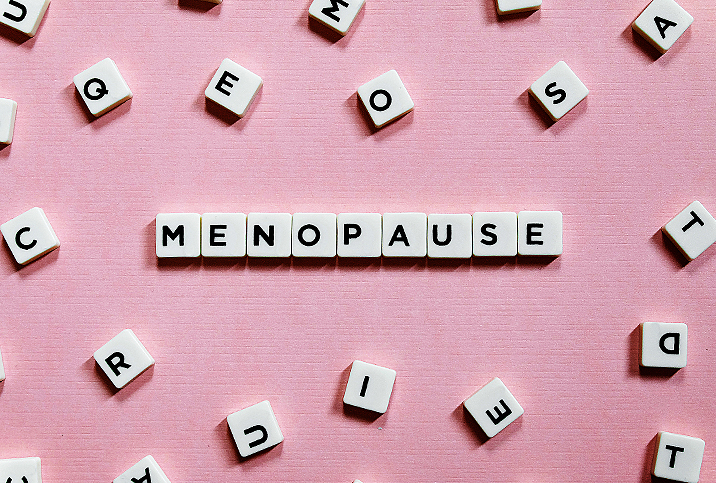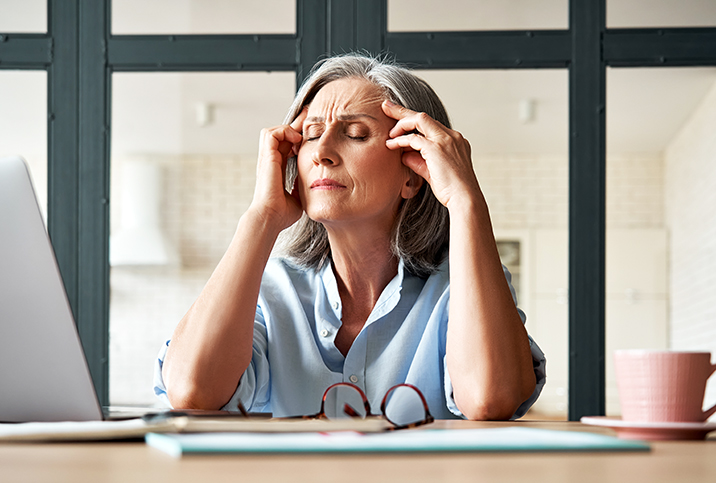The Most Common Risk Factors for Premature Menopause and How to Treat It

If you’re under 40 years old, have been missing your menstrual period, and are dealing with hot flashes, vaginal dryness, incontinence or mood changes (among other symptoms), you may be going through premature menopause.
Everyone who gets a period will experience menopause—the time during which your menstrual cycle comes to a permanent stop and you can no longer become pregnant—at some point. Typically, this happens in your 40s or 50s, with an average onset age of 51. But some women experience it much earlier.
Anyone who goes through menopause before the age of 40 is considered to be experiencing premature menopause, or primary ovarian insufficiency. While it is relatively rare—only about 1 percent of people who menstruate go through premature menopause—those who experience it are far from alone.
The reasons premature menopause occurs can vary, and a number of different factors contribute to it.
Medical conditions
Autoimmune conditions like rheumatoid arthritis, thyroid disease, inflammatory bowel disease, lupus, HIV/AIDS and others are sometimes associated with premature menopause. Autoimmune diseases cause your immune system to perceive your own healthy tissue as a threat and attack it. If this occurs with the ovaries, they may stop producing hormones at the correct levels, prompting menopause.
Certain infections, such as mumps and pelvic tuberculosis, may push the ovaries into ovarian failure and induce menopause.
Premature menopause can also be induced by genetic abnormalities such as Fragile X syndrome, Turner syndrome, congenital adrenal hyperplasia and galactosemia. Many of these conditions negatively affect ovarian follicles, the sacs that hold and release eggs. If you have a family history of premature menopause, you may be genetically predisposed to experience it.
Medical treatments
Radiotherapy can lead to ovarian failure, resulting in premature menopause. Chemotherapy can trigger premature menopause as well. Researchers don’t know for certain why that happens, but there is some evidence it affects granulosa cells and oocytes, which can interfere with ovulation.
In some cases of premature menopause, surgery could be to blame. Removal of the uterus (hysterectomy) will stop your period but will not necessarily create the symptoms typical of menopause, as long as your ovaries are still in place. Removal of the ovaries (oophorectomy), which is often done to treat cancer or endometriosis, can cause premature menopause.
Lifestyle factors
Smoking exposes you to chemicals that can activate Bax, a gene, and Ahr, a gene receptor. Once activated, they can kill ovarian cells and induce menopause. It’s important to note that most research ties smoking to early menopause, not premature menopause: early being before age 45 and premature being before age 40.
You don't necessarily have to be a smoker to be exposed to chemicals that can lead to premature menopause. Some research shows that endocrine disruptors, chemicals that interfere with hormones—found in pesticides, plastic, cosmetics and more—may cause early menopause as well.
Unknown causes
Frustratingly, in up to 60 percent of cases of premature menopause, doctors can’t find a clear cause. Other factors that have been suggested include diet and stress, but research has not confirmed any sort of real link.
Treating premature menopause
While premature menopause usually can't be cured, a number of treatments can help you deal with some of the less pleasant symptoms. Hormonal therapy and certain types of birth control can help stabilize your estrogen levels, which can help alleviate hot flashes, vaginal dryness, bone-density loss and mood problems. Low-dose antidepressants can also help with hot flashes, while over-the-counter solutions like lubricants and vaginal moisturizers can make sex more comfortable. Prescription medications such as alendronate and raloxifene are other non-hormonal options for preventing bone-density loss, thereby lowering your risk of osteoporosis.
Menopause, premature or not, does not indicate your life is beginning its decline. With the help of medical treatments, supplements and therapies, you can reduce symptoms and get back to the life you want to live.

















